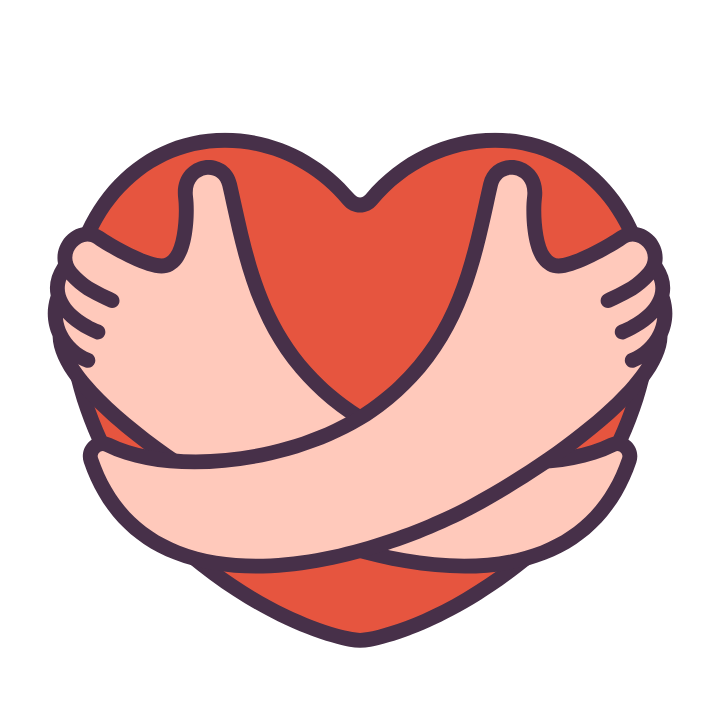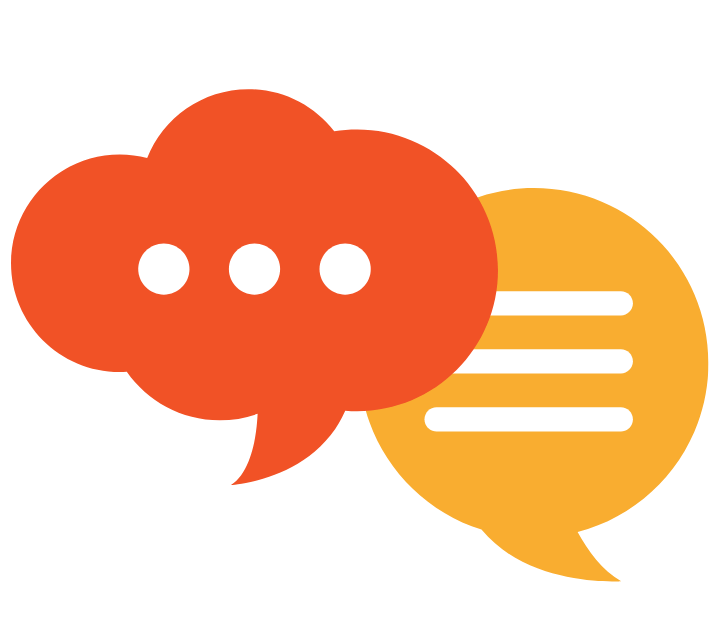- Haemophilia, 2020-May; 26(3): 431-442
Mental Health Meets Haemophilia
There’s something about approaching the end of the year that makes you reflect on where you are, and what’s in store for the next chapter. Whether that reflection leads you to excitement or feelings anxiety, there’s no better time to focus on your own mental health.
As we head into 2022 (yes 2022, can you believe it!) have you considered a mental health check and making it part of your routine? Sounds complicated, but simply put, it means checking in with yourself on matters of the mind and emotion regularly. It’s been said many times before, that men in particular shy away from engaging in discussions around mental health, confiding in others and sharing their problems. We also know that when it comes to patients with haemophilia, the most frequent diagnoses relating to mental health are depression, anxiety, and attention deficit hyperactivity disorder (ADHD)1. But the positive benefits of prioritising and nurturing mental health goes beyond the mind and is a fundamental pillar to overall health. For people living with haemophilia this can be especially true.
Whether you’re balancing life with a bleeding disorder and everyday life problems, worrying about pain, or coping with the lack of understanding, we know there are many things that might impact your mental health. However, a recent study, “Perceived well-being and mental health in haemophilia,” published in the journal Psychology, Health & Medicine found that people with chronic diseases like haemophilia are not only able to handle daily challenges, but also to thrive and grow through hardship better than adults without a chronic condition.
When going through a challenging time, the good news is that there are lots of ways you can help yourself to feel better, even though we all deal with things differently.
Today we’re sharing some tips and tricks on mental health to support you in tackling those anxious and stressful moments. So, whether you’re someone living with haemophilia, or someone looking after a person with haemophilia, get your pens ready to take notes!
Tips for patients
Little and often is best
When it comes to mental health, don’t wait for the crisis to hit. Regular mental health check-ins can help you to take stock of how you’re feeling and recognise your triggers. Often part of the battle is being aware of when you’re feeling anxious or scared. Perhaps you’re anxious about an upcoming hospital visit. Practice mindfulness-based breathing techniques to reduce the pain by a few notches. In the weeks leading up to it take some opportunities to pause and check-in on your anxiety levels. Think of it like a regular mental health work out, you’ll see the benefits over time if you stay consistent just like you might at the gym.
Ignore the stereotypes
‘Man up’ – sound familiar? When you’re going through a stressful time the idea of sucking it up, portraying a composed front and staying strong might feel safe.
However, gender stereotypes can be so damaging. You can be strong and know it’s ok to cry at the same time, even when you look like you can handle it, you can seek help and not pretend to have it all together.
Whether you are in physical pain or concerned about the future, the more you’re open about your worries and mental health issues, the more you allow yourself to navigate the ups and downs in a healthy manner.
Let it out
If you’re feeling anxious or scared, then try and talk about it. You may not be comfortable with sharing with the people closest to you, but you can ask for help if you need it. There are organisations and people you can speak to outside of your immediate circle. You could also consider starting a diary or journaling to document how you’re feeling.

Get practical, get physical
Look after your body and your mind. Be it breathing exercises, mindfulness and meditation, journaling, getting sufficient rest, committing to regular exercise – there are so many ways to improve your overall wellness. Many people with haemophilia use meditation to manage physical pain but it can also help you to relax and calm yourself in stressful situations. Similarly, there are even yoga programs designed specifically for those with bleeding disorders and chronic pain. How you go about it is up to you, just be honest about what you can and can’t do physically and socially, with yourself and with others and don’t feel guilty about saying no!

Be positively realistic
We tend to mark the end of the year by making goals lists and plans about what we want to accomplish. This can be great for keeping you focused, but it can also put unnecessary pressure on you. It’s important to build in some flex into your plans and celebrate the wins while you’re on the journey, no matter how small. Focus on the things you have achieved rather than those you haven’t.
Ask
Despite how it may feel you are not a superhero. Raising a child with extra needs can be challenging and the volume of things you must get through in a single day may have you feeling overwhelmed. Don’t let the temptation to always be in control stop you from asking for and receiving help as and when you need it! Start a list of questions at home so you can remember to ask them next time you’re speaking to a healthcare professional.
Self-care is a must
Remember you ned to look after yourself to look after others. As a carer, self-care is an absolute must, particularly for your mental health. Don’t forget to steal a few moments in the day to do something you love, take a walk, do a yoga session, catch up with a friend – schedule in YOU time.

Sleep!!
Don’t overburden yourself and set unrealistic goals or expectations. Ensure that you prioritise your own rest. Sleep is powerful and getting a good night’s worth is beneficial for both you and your loved ones.

Find your tribe
Who’s in your support system? Be it your healthcare team, a friend or family member you can confide in and rely on – keep them close. Sometimes you won’t know anyone else who has a child with haemophilia and that’s where social media and forums like Mumsnet are useful.

Help is at hand
If you are struggling with your mental health this season, please don’t go it alone. There is help available at your fingertips if you need it. Don’t know where to start? Here is a global list of support organisations:
http://www.hemofilia.org.ar/ (Argentina – Fundacion de la Hemofilia)
http://bluter.at/joomla/new_site/ (Austria - Österreichischen Hämophilie Gesellschaft)
https://www.hemofiliabrasil.org.br/a-fbh/institucional/ (Brazil - Federação Brasileira de Hemofilia (FBH)
https://www.hemophilia.ca/ (Canada - Canadian Hemophilia Society)
https://www.bloderforeningen.dk/ (Denmark - The Danish Haemophilia Society)
https://hemofiilia.ee/ (Estonia - Eesti Hemofiiliaühing)
https://www.ehc.eu/ (Europe - European Haemophilia Consortium (EHC)
https://afh.asso.fr/ (France - l’Association française des hémophiles (AFH)
https://www.dhg.de/ (Germany - Deutschen Hämophiliegesellschaft)
https://www.mhe.hu/ (Hungary - Magyar Hemofília Egyesület)
https://www.hemophilia.in/ (India - Hemophilia Federation India)
http://hemofilia.or.id/ (Indonesia - Himpunan Masyarakat Hemofilia Indonesia)
https://haemophilia.ie/ (Ireland - Irish Haemophilia Society)
https://fedemo.it/ (Italy - La Federazione delle Associazioni Emofilici (FedEmo)
http://www.kohem.org/ (Korea - Korea Hemophilia Foundation)
http://www.hemofilija.lt/ (Lithuania - Lietuvos žmonių sergančių hemofilija asociacija (LŽSHA)
https://www.hsm.org.my/ (Malaysia - The Hemophilia Society of Malaysia (HSM)
https://hemofilia.org.mx/ (Mexico - Federación de Hemofilia de la República Mexicana A.C.)
https://www.nvhp.nl/ (Netherlands - Nederlandse Vereniging van Hemofilie-Patiënten)
https://www.haemophilia.org.nz/ (New Zealand - Haemophilia Foundation of New Zealand Inc. (HFNZ)
https://fbin.no/ (Norway - Norwegian Hemophilia Society)
http://hemophiliaphilippines.org/ (Philippines - The Philippine Hemophilia Foundation Inc.)
https://www.ehc.eu/ (Russia - The European Haemophilia Consortium (EHC)
https://haemophilia.org.za/ (South Africa - The South African Haemophilia Foundation)
https://fedhemo.com/ (Spain - La Federación Española de Hemofilia (FEDHEMO)
https://www.fbis.se/ (Sweden - Förbundet Blödarsjuka i Sveriges)
https://turkhemoder.org/ (Turkey - The Hemophila Society of Turkey)
https://haemophilia.org.uk/ (United Kingdom – The Haemophilia Society)

